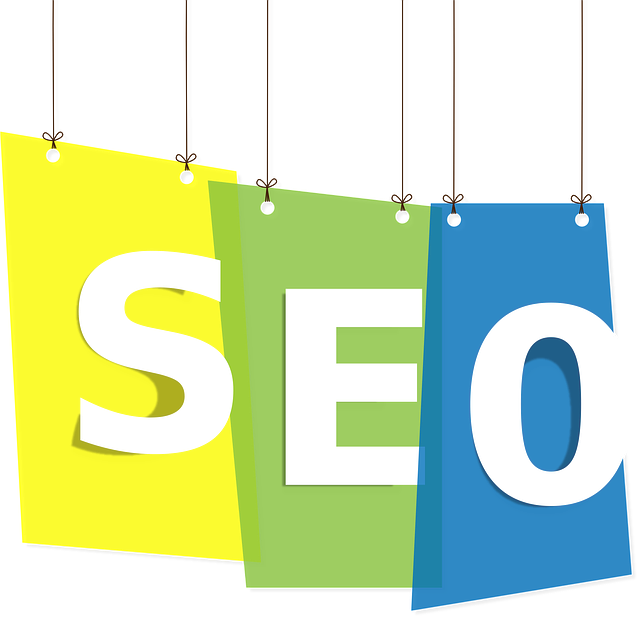E-commerce SEO presents unique challenges due to dynamic content and high competition, necessitating optimization of product titles, descriptions, and URLs. Hiring a specialized SEO Agency for E-commerce Websites significantly enhances visibility and traffic by leveraging advanced tools for keyword analysis, ranking tracking, and user behavior monitoring. These agencies focus on both on-page optimization (e.g., strategic keyword research, rich snippets) and high-quality backlinks to transform e-commerce sites into powerful sales engines. Through optimized product pages, user-generated content (UGC), technical SEO considerations, and effective backlink building strategies, these agencies drive sales and attract customers in today's digital era.
In the dynamic realm of e-commerce, a strong online presence is paramount. This article guides you through the intricate landscape of Search Engine Optimization (SEO) specifically tailored for e-commerce platforms. We explore unique challenges and opportunities, from keyword research that goes beyond basic terms to optimizing product pages and leveraging user-generated content. Learn about technical SEO considerations, building quality backlinks, and measuring success—essential strategies for any SEO agency aiming to elevate e-commerce websites in today’s digital marketplace.
Understanding E-commerce SEO: Unique Challenges and Opportunities

E-commerce SEO presents a unique set of challenges and opportunities for online businesses. With high competition and a vast number of products, e-commerce platforms need to optimize their content and structure to rank well in search engines. Unlike traditional websites with static content, dynamic e-commerce sites have product variations, user-generated reviews, and constantly changing inventory, all of which require careful consideration in SEO strategies. For instance, optimizing product titles, descriptions, and URLs is crucial to ensuring each product page has a clear signal to search engines about its relevance.
Hiring an SEO Agency for E-commerce Websites can be a game-changer. These agencies specialize in understanding the nuances of e-commerce platforms and employ advanced techniques to boost visibility and drive traffic. They leverage tools to analyze keyword performance, track rankings, and monitor user behavior, ensuring that your online store stays competitive in the digital marketplace. By focusing on both on-page optimization and building high-quality backlinks, an SEO agency can help transform your e-commerce site into a powerful sales engine.
Keyword Research for E-commerce: Going Beyond Basic Terms

In the competitive world of e-commerce, a strategic approach to keyword research is essential for any successful online business. While it might seem straightforward, going beyond basic terms can significantly enhance your SEO efforts. An effective strategy involves digging deeper into user intent and identifying long-tail keywords that accurately reflect customer search queries. For instance, instead of simply targeting “shoes,” consider specific types like “running shoes for women” or “vintage sneakers.” This targeted approach not only improves search rankings but also boosts the relevance of your e-commerce platform to potential customers.
A reputable SEO agency for e-commerce websites can provide valuable insights and tools to streamline this process. They assist in uncovering hidden gems, analyzing competitor strategies, and staying ahead of trends. By employing advanced keyword research techniques, these agencies help businesses create content that resonates with their target audience, driving organic traffic and increasing conversions. This strategic focus ensures that your e-commerce platform not only appears in search results but also attracts the right customers who are actively seeking your products or services.
Optimizing Product Pages: From Titles to Descriptions

Optimizing product pages is a critical aspect of an SEO agency’s strategy for e-commerce websites. Every element on a product page, from the title to the description and image alt tags, plays a role in improving search visibility and driving conversions. For instance, using relevant keywords strategically throughout these elements can significantly enhance a page’s ranking potential.
E-commerce platforms offer structured data that allows SEO agencies to provide search engines with clear information about products. This includes rich snippets, which not only make product listings more visually appealing but also help in conveying essential details like price, availability, and reviews, further boosting the chances of higher click-through rates from search engine results pages (SERPs).
The Power of User-Generated Content in E-commerce SEO

In the competitive world of e-commerce, user-generated content (UGC) is a powerful tool that can significantly boost your SEO strategy. As an SEO Agency for E-commerce Websites, we understand that UGC not only enhances brand credibility but also provides valuable insights into customer preferences and behaviors. When customers leave reviews, share their experiences, or post pictures using products from your site, this content becomes searchable on search engines, increasing the visibility of both the product and your brand.
Moreover, user-generated content signals to search engines that your platform is an active, trusted source of information. This can lead to improved rankings for relevant keywords as search algorithms prioritize content that is frequently updated and highly engaged with. Encouraging and incorporating UGC into your e-commerce platform’s SEO strategy is a game-changer, ensuring that your business stays ahead in the digital landscape.
Technical SEO Considerations for Enhanced Website Performance

When it comes to e-commerce, a well-optimized website is key to driving sales and attracting customers. An SEO agency for e-commerce websites understands the unique challenges and opportunities presented by this landscape. Technical SEO considerations are fundamental to ensuring your online store runs smoothly and efficiently. From site speed optimization to implementing structured data markup, these technical aspects directly impact user experience and search engine rankings.
A critical aspect is ensuring your website is mobile-friendly and responsive, given that a significant portion of online shopping now occurs on smartphones and tablets. Regularly auditing and updating your site’s technical structure will help search engines crawl and index your pages effectively, leading to better visibility and increased organic traffic.
Building Quality Backlinks for E-commerce Dominance

E-commerce dominance requires a strategic approach to building quality backlinks, which serve as votes of confidence from other reputable websites. An SEO Agency for E-commerce Websites can play a pivotal role in this process by identifying high-value, relevant platforms where brands can earn or secure links. This includes industry-specific blogs, influential online publications, and reputable directories that align with the target audience’s interests and demographics.
By creating valuable content that resonates with these audiences, e-commerce businesses can attract natural backlinks as users share and link to their content. Additionally, strategic partnerships and collaborations with influencers or complementary brands can facilitate link building through guest blogging, joint promotions, or co-marketing campaigns, further enhancing the online visibility and authority of e-commerce platforms.
Measuring and Analyzing E-commerce SEO Success

Measuring and analyzing e-commerce SEO success is a critical step for any online business aiming to thrive in a competitive digital landscape. An SEO agency for e-commerce websites can provide valuable tools and insights to track key performance indicators (KPIs) that directly impact sales and revenue. By monitoring organic traffic, click-through rates, conversion rates, and average order value, businesses gain actionable data to optimize their strategies effectively.
Regular analysis allows e-commerce platforms to identify trends, understand customer behavior, and pinpoint areas for improvement. For instance, a drop in organic search rankings might indicate a need for fresh content or updated product metadata. Conversely, increased sales from SEO efforts highlight successful keyword targeting and link-building campaigns. Such data-driven insights empower businesses to make informed decisions, continually enhance their online visibility, and ultimately drive more qualified traffic to their sites.
